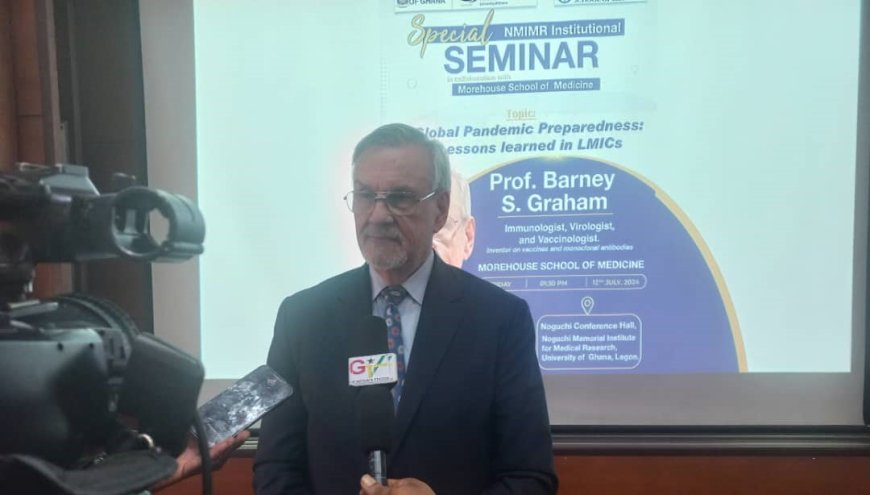Fighting epidemics: Countries urged to pay attention to forests
Lower and middle-income countries (LMIC) including Ghana, have been advised to commit many resources towards the discovery and surveillance of the forest where new viruses are emerging so they will be able to prepare better when an epidemic strikes.
“With places on earth that are near the equator, having large forests, high biodiversity, with lots of different plants and animals, these are places where new viruses emerge. When you disturb the forest, things happen and things have to find new places.
“So investment in discovery and surveillance of what is happening at that forest-human interface is important. That is where we will find the next problem. And if we can find it early, we can prepare for it better,” Professor Barney S. Graham, an immunologist, virologist, and clinical trials physician, has said.
Prof Graham, who is also the Director of the David Satcher Global Health Equity Institute, Atlanta, USA, was speaking at a seminar in Accra, organised by the National Vaccine Institute and the Noguchi Memorial Institute for Medical Research (NMIMR), College of Health Sciences, University of Ghana.
The seminar was held on the theme: “Global Pandemic Preparedness: Lessons Learned in LMIC”.
The seminar was attended by key stakeholders in the vaccine research and development field to deliberate on potential collaborative efforts to advance vaccine development in Ghana.
Prof Graham, a professor of Medicine and Microbiology, Biochemistry, and Immunology at Morehouse School of Medicine in Atlanta, said already, the World Health Organization (WHO) was already supporting LMICs, including Rwanda and South Africa, to establish bio-hubs as well as training and building capacities of professionals in15 other countries towards vaccine manufacturing.
Prof William Kwabena Ampofoh, Chief Executive Officer of the Ghana National Vaccine Institute (GNVI), in a panel discussion, said Ghana was on the right path in ensuring that the country was well prepared for any future outbreak through the establishment of the Vaccine Institute.
He said the establishment of that Institute, showed the high level of commitment and seriousness of the Ghanaian government towards vaccine development, while Research and development efforts were also being pursued toward the manufacturing of new and better vaccines.
He said researchers and academia would continue to “push the Government to continue to invest in vaccine manufacturing, while the right partnerships would be pursued with the development partners like GAVI, WHO and UNICEF.
Dr. Mary Amoakoh-Coleman, a Senior Research Fellow, at Noguchi Memorial Institute for Medical Research, University of Ghana, Legon, said emerging diseases were not only the problem of LMICs so there was really the need for governments and development partners to strengthen their bonds to be able to address such emerging challenges.
She emphasised regional partnerships as well as public-private partnerships to ensure that enough vaccines were manufactured in many LMICs to benefit the populations when the need arises.
She was, however, emphatic that people needed to be educated on the importance of vaccines, which are meant to protect them and prevent diseases.
She said the issue of trust of people in vaccine acquisition was a challenge and so there was the need for constant education among communities, schools, churches, markets, clinics and other health centres on the importance of vaccines, saying, “We should not wait till there are outbreaks before people are engaged.
“…There are core religious, ethnic and cultural misconceptions, and myths that really affect people’s attitudes toward vaccines and this is what we need to constantly work on amongst the population even in the absence of an outbreak.
“So that when there is an outbreak, we just top up with the risk communications, and the acceptance is better,” Dr Amoakoh-Coleman stated.
At the seminar, participants were made aware of global efforts to ensure that there were vaccines to cater to the emerging pandemic situation by the panellists who discussed the theme.
They appealed for more funds for research institutions to be able to do more research as well as the opportunity of public-private partnerships in the development and deployment of Vaccines to be vigorously pursued by countries.
Source: Lead News Online/Ransford Afotey Mensah


























































